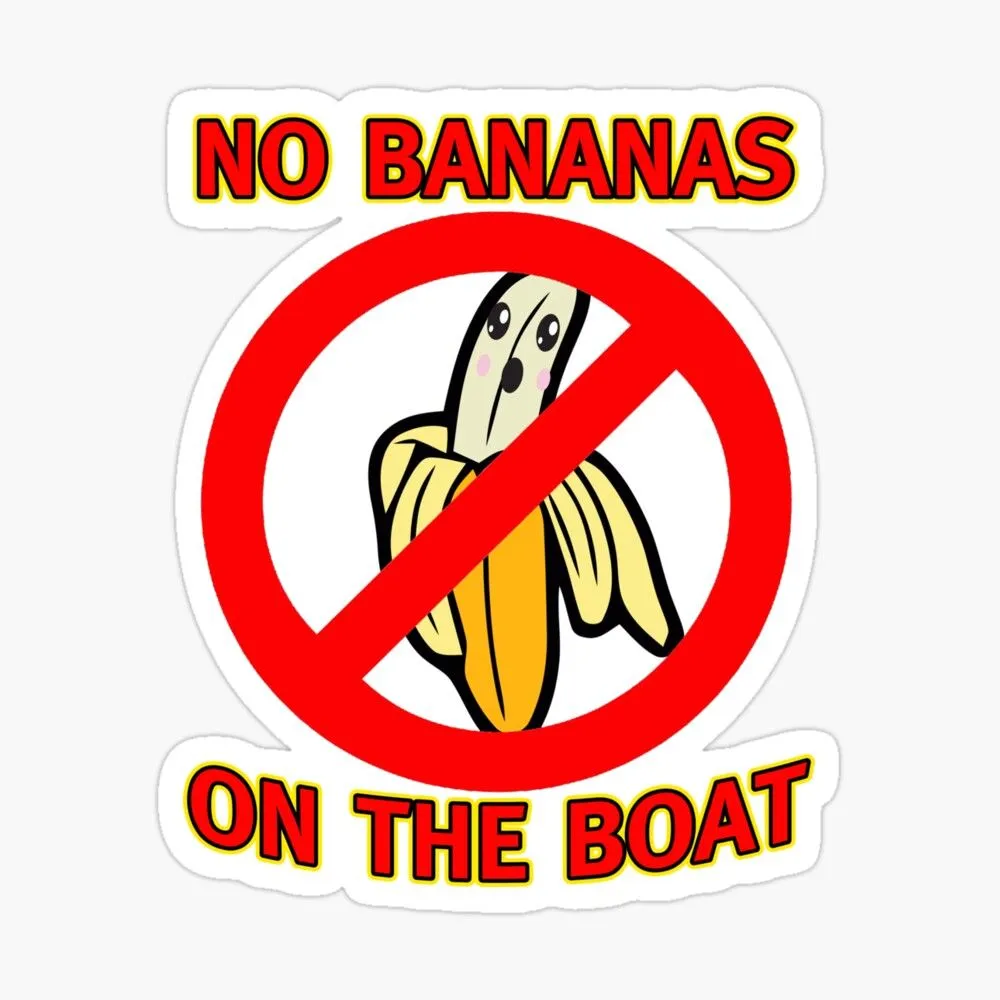The Mysterious Ban on Bananas: Exploring the Superstitions and Science behind Fishing’s Oddest Myth
Have you ever heard the superstition that bananas are bad luck on fishing boats? While it may seem like a silly and outdated belief, many in the fishing industry take it quite seriously. In this article, we’ll dive into the origins of this superstition and explore other myths within the fishing industry. Additionally, we’ll look at scientific explanations for why bananas may not be allowed on fishing boats. If you’re curious about this strange phenomenon and want to learn more, keep reading!
Why have bananas gained the reputation of being bad luck on fishing boats?
Bananas have long been associated with bad luck on fishing boats, but the origins of this superstition are shrouded in mystery. Some say that it dates back to the days of sail when bananas were transported across the ocean by ships. These ships were often infested with insects and other pests, which could easily spread to other parts of the ship and ruin food supplies.
As a result, sailors believed that bananas brought bad luck and refused to bring them aboard their vessels. This belief was further reinforced by stories of ships carrying bananas sinking or experiencing other misfortunes at sea.

Despite there being no scientific evidence to support this superstition, many fishermen still refuse to bring bananas on board their boats. Some even go so far as to ban any clothing or equipment with banana imagery, such as yellow rain jackets or hats.
But not all fishermen follow this tradition. In fact, some believe that bananas actually bring good luck on fishing trips. They argue that the potassium in bananas helps prevent cramps and aids in muscle recovery after a long day at sea.
Ultimately, whether or not you believe in the banana superstition is up to you. But one thing is for sure – it has certainly sparked curiosity and intrigue among those looking to learn more about maritime traditions and beliefs.
The origin of the superstition surrounding bananas on fishing boats.
The superstition surrounding bananas on fishing boats has been around for centuries, and its origins are shrouded in mystery. Some believe it began with the ancient Greeks, who believed that the gods would punish those who brought bananas onto ships.
Others speculate that it arose from practical concerns. Bananas were often transported in close proximity to other cargo, and as they ripened, they released gases that could accelerate the decay of nearby fruits and vegetables.
Regardless of its origins, the superstition persists to this day among many fishermen. Some refuse to allow bananas on their boats at all, while others simply avoid eating them while at sea.
Despite lacking any scientific basis, this belief has become deeply ingrained in many fishing communities around the world. It serves as a reminder of how easily superstitions can take hold and shape our behavior – even in situations where there is no rational explanation for them.
In conclusion, while we may never know exactly why bananas became associated with bad luck on fishing boats, it is clear that this superstition has become an enduring part of seafaring culture.
Other superstitions in the fishing industry?
While the superstition surrounding bananas on fishing boats is well-known, there are actually a number of other superstitions that exist within the fishing industry.
For example, some fishermen believe that it’s bad luck to whistle while on board a boat. This may be because whistling was traditionally associated with calling forth the wind, and calm seas were considered preferable for fishing.

Other fishermen believe that it’s unlucky to bring women on board a boat, as they’re seen as distractions from the task at hand. Similarly, some believe that it’s bad luck to have any red objects on board – perhaps because red is associated with danger or blood.
Despite the fact that many of these superstitions seem outdated or even silly to outsiders, they still hold sway within the fishing community. In fact, many fishermen will go out of their way to avoid tempting fate – whether by avoiding bananas or by adhering strictly to other superstitious practices.
While it may seem strange to those outside of the industry, these beliefs serve an important function for those who work in such a dangerous and unpredictable environment. By following these traditions and taboos, fishermen can feel more in control of their surroundings – something that can be crucial when facing unknown waters or unforeseen challenges.
Scientific explanations for why bananas may not be allowed on fishing boats.
The age-old superstition of bananas being bad luck on fishing boats has been debated for centuries. However, science may provide some explanations for why this belief persists.
One theory is that bananas release ethylene gas, which can cause other fruits and vegetables to ripen and spoil faster. On a fishing boat where fresh produce is essential, the presence of bananas could be detrimental to the overall quality of the food supply.
Another explanation is related to history and folklore. Bananas were often carried on slave ships in the 1700s and 1800s as a cheap source of nutrition for enslaved individuals. The association with oppression and suffering may have contributed to the superstition surrounding bananas on boats.

« if banana is apple apple is grapes
The Ultimate Guide to Knowing When Your Banana Bread is Done: Tips and Tricks for Perfect Baking! »
Regardless of whether these scientific theories hold true or not, it’s clear that the belief in “bananas on boats” runs deep within maritime culture. So next time you’re packing for a fishing trip, maybe leave those yellow fruits at home just in case!
Check out our other articles to find out even more about banana.
Bananas have long been regarded as bad luck on fishing boats, and we’ve discussed the various possible explanations for this superstition. Whether it be cultural or scientific, understanding why bananas are not allowed on fishing boats can give us insight into the history of maritime culture. For anyone looking to learn more about bananas and their place in this industry, make sure to check out our other articles!








